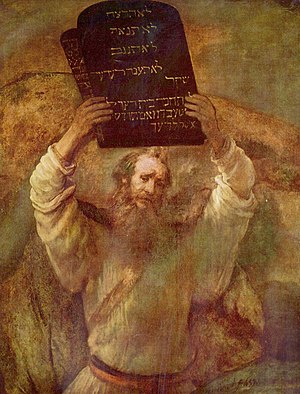Lessons From the Old Testament: Leadership
It is difficult to overestimate the weight God gives to leadership in the Old Testament.
It begins with Adam, who is the representative leader for all of mankind. His decision to act in accord with Eve’s reasoning about the fruit from the tree of the knowledge of good and evil has plunged us into incalculable suffering and an unmitigated history of rebellion against our Creator. But there is the promise of a leader, the seed of the woman, who will come and bruise the head of the serpent to restore God’s kingdom to earth. And the rest of history is the unfolding of many such leaders, offspring of the woman, who fulfill that role in part until Jesus comes.
And so the actions of Abraham, Moses and Joshua become paradigms for how leadership can affect the welfare of many people. In their cases, they flesh out for us a mostly godly pattern of leadership. They act in accord with God’s desire to bless His people rather than a self-centered meeting of their own needs and desires. When they step out of this God-centered, faith-motivated place, they suffer and those they lead suffer.
The book of Judges is a chronicle of the gradual demise of godly leadership in Israel. Though Deborah seems a paragon of virtuous leadership, others begin showing self-aggrandizing ways all too quickly. Gideon starts well, but the ephod he has crafted from the spoils of victory becomes a stumbling block to Israel as they involve it in idolatrous worship. Samson never does seem to get it together until the very end. And the foolishness of Jephthah and others continues throughout the account until we see paganization, moral decay and disunity among the tribes rampant.
One bright spot in this picture is the life of Ruth and Boaz. Both exemplify unselfish concern for others. They become the ancestors of King David, who replaces the initially selfless King Saul and who reigns for a season with great wisdom and success. It is only when he seeks something for himself and abuses his authority to get it that the problems begin for him and those around him. There is restoration but there are also consequences.
The story of the kings of Judah and Israel are really tales of godly or ungodly leadership. If the king rules as a steward of God’s grace, loving His people more than himself and loving God rather than false gods, the Lord brings prosperity to Israel. But if not, God follows the conditions of the covenant and brings progressively greater disciplines into the lives of His people.
When God finally exiles his people from the land, it is still leadership that makes the difference in exile. Men and women like Daniel, Esther, Ezra and Nehemiah heed the voice of God and choose to sacrifice their own wills and agendas in order to save their people.
God uses leaders! The Old Testament is clear evidence of that. The kind of leaders He uses is a richly rewarding study as we lay out the evidence before us and evaluate it in light of what godly leadership looks like.
About the Author
Randall Johnson
A full-time pastor since 1979, Randall originally graduated from Dallas Theological Seminary (ThM) in 1979 and from Reformed Theological Seminary (DMin) in 1998. He is married with four grown children and a pile of epic grandchildren.


